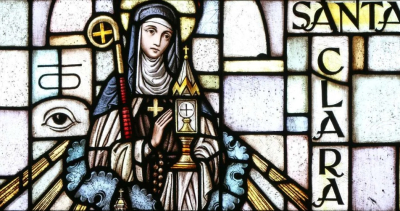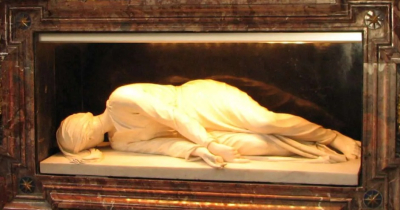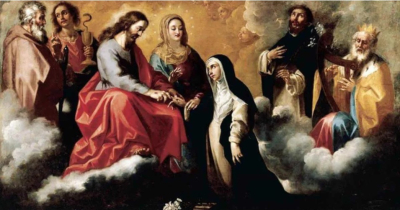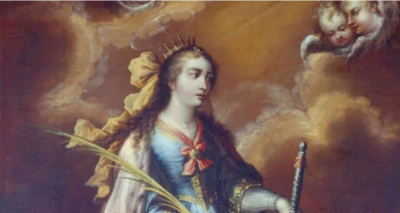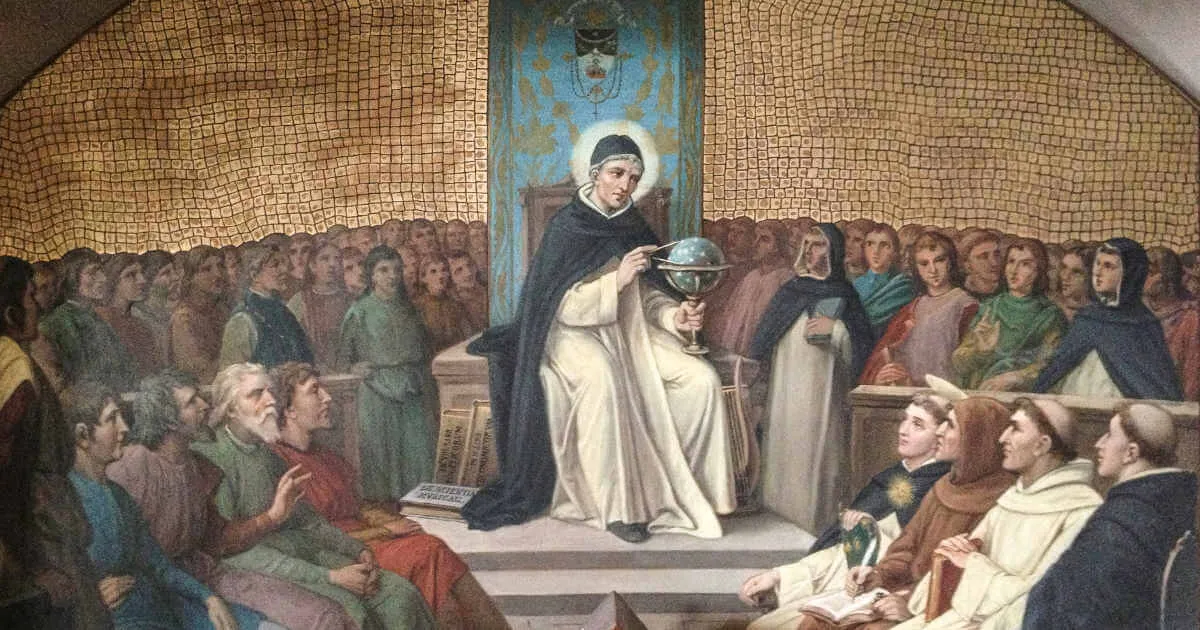
The Story of Saint Albert the Great
- account_circle admin
- calendar_month 18/02/2025
- visibility 187
- comment 0 komentar
- label Saints Speaking
Saint Albert the Great was born around the year 1200 in Lauingen, Germany. He came from a noble family and received an excellent education. As a young man, he was sent to study at the University of Padua in Italy, where he developed a deep love for learning, especially in the fields of philosophy and natural sciences. During his time in Padua, he encountered the Dominican Order, a group of religious scholars dedicated to teaching and preaching. Inspired by their devotion to knowledge and faith, Albert decided to join the order, despite opposition from his family.
As a Dominican friar, Albert continued his studies and became one of the most respected scholars of his time. He traveled to different universities, teaching theology and philosophy. He was particularly interested in the works of Aristotle, which had been largely forgotten in Europe. Albert worked tirelessly to study and explain Aristotle’s ideas, integrating them with Christian teachings. His writings and teachings helped shape medieval philosophy and laid the foundation for future scholars, including his most famous student, Saint Thomas Aquinas.
Albert was not only a philosopher and theologian but also a scientist. He conducted extensive studies in various scientific fields, including biology, chemistry, physics, astronomy, and geography. His curiosity and dedication to understanding the natural world earned him the title “Doctor Universalis,” meaning “Universal Doctor,” because of his vast knowledge in so many different subjects. He believed that faith and reason were not in conflict but rather complemented each other, teaching that studying the natural world could lead to a greater understanding of God’s creation.
In 1260, Albert was appointed the Bishop of Regensburg, a role he accepted out of obedience to the Church. However, he preferred the life of a scholar and teacher over administrative duties. After serving as bishop for a few years, he requested permission to resign and return to his academic work. The Church granted his request, and he spent the rest of his life writing, teaching, and advising both religious and political leaders. His influence extended far beyond his own time, as his teachings continued to inspire future generations of theologians and scientists.
Saint Albert the Great passed away on November 15, 1280. He was later canonized as a saint and declared a Doctor of the Church in 1931 by Pope Pius XI. He is the patron saint of scientists, philosophers, and students, recognized for his contributions to both faith and reason.
Reflection: Lessons from Saint Albert the Great
The life of Saint Albert the Great offers valuable lessons about the relationship between faith, knowledge, and perseverance. His dedication to learning and teaching serves as an inspiration to scholars and students around the world. Here are some important lessons we can learn from his life:
- Faith and Reason Work Together – Albert believed that science and religion should not be seen as separate or conflicting but rather as two ways of understanding God’s creation. His life teaches us that knowledge can deepen our faith.
- Lifelong Learning – Albert’s curiosity and dedication to learning remind us that education is a lifelong journey. No matter our age or position, we should always seek to grow in wisdom and understanding.
- Humility in Leadership – Despite his great knowledge and accomplishments, Albert remained humble. He accepted the role of bishop out of obedience but later stepped down to focus on his true calling. His example teaches us to follow our vocations while remaining humble and faithful.
- Sharing Knowledge – Albert dedicated his life to teaching others. His efforts helped shape the intellectual tradition of the Church and influenced future scholars. His life encourages us to share our knowledge and wisdom with others to help them grow.
Saint Albert the Great’s story inspires us to pursue truth with both our minds and hearts, showing that true wisdom comes from a balance of faith and reason. His legacy continues to guide scientists, theologians, and students who seek to understand the world and God’s presence in it.



